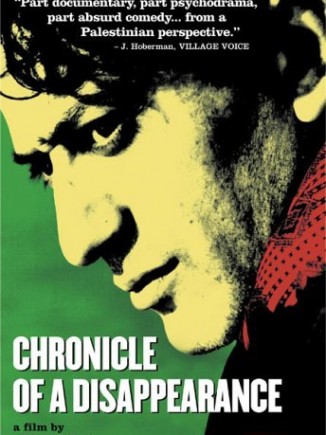
1996
Palestinian territory, occupied
84min - 35 mm - 1.77 - Dolby SR - Drama Comedy
New HD master in 2015
Original language :Arabic / Hebrew / French / Russian
Cast
Elia Suleiman
Ula Tabari
Nazira Suleiman
Fuad Suleiman
Jamal Daher
Credits
Director: Elia Suleiman
Producer : Elia Suleiman
Production Company : DHAT PRODUCTIONS
Screenplay : Elia Suleiman
Director of photography : Marc Andrie Batigne
Sound : Jean-Paul Mugel
Editing : Anna Ruiz
Set : Samir Srouji & Hans ter Elst
Festivals & Awards
2004 :
Taiwan Doc Fest
Malbourne Film Fest
2002:
Athens Palestine Festival
2001:
Walker Art Center Minneapolis
MOMA New York
Palestinian Film Week Switzerland
2000:
Cinemateket USF Norway
Culturgest Portugal
Bologna Film Archive
Jakarta Film Festival
Palestinian Film Festival Palermo
1999:
Mediterranean Film Festival Heidelberg Germany
13 Days of Independent Cinema Augsburg Germany
1998:
Bologna
Singapore
Batik Film Festival Perugia
Jewish Film Festival Vienna
Jewish Film Festival Berlin
Arsenals Riga
Cinema Udine Italy
Cinema Münster Germany
Cinema Halle Germany
Mediterranean Film Festival Tübingen Germany
1997:
Rotterdam
Istanbul
Haus der Kulturen der Welt Berlin
Kassel
Brussels
Jerusalem
Wellington
Hong Kong Arts Centre
Copenhagen
Hamburg
Vancouver
Pusan
Festival of Three Continents
1996 :
Venice - Best First Film

In an investigation of the twilight zone between narrative, history and autobiography, CHRONICLE OF A DISAPPEARANCE transgresses the boundaries of many genres. After living in New York for many years, the Palestinian film makerElia Suleiman returned to Israel for this film. He used his privileged position as half insider and half outsider to analyze how much the Arab population of Israel is losing its national identity. Through his quasi-aimless roamings we becomeacquainted with his extended circle of family and friends. The characters lead a marginal existence in an occasionally surreal reality. The director/protagonist moves between the role of character and spectator, mediator and narrator, asthe film itself moves between documentary, fiction, reminiscence and present. The film is lucidly structured, funny and ironic.
Un réalisateur revient en Israel pour faire un film. Il entreprend d'observer la perte d'identité de la population arabe d'Israel et organise son recit en deux parties: "Nazareth, journal intime" et "Jérusalem, journal politique". A Nazareth, sa ville natale, il filme sa famille, au sens large. Son père, sa mère, ses amis, ses voisins. "Jérusalem, journal politique" s'ouvre sur une chanson clef et se clot sur la fin des émissions de la télévision israélienne devant un couple palestinien endormi.








